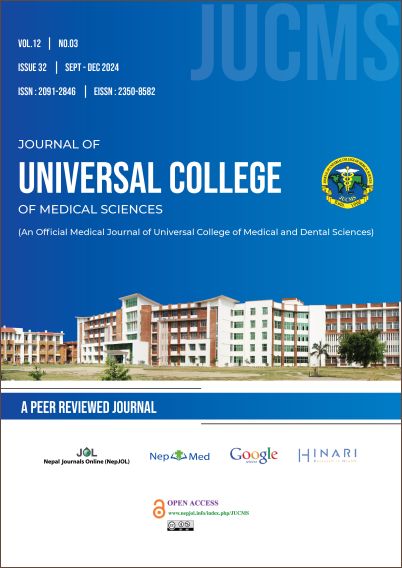The Role of Artificial Intelligence In Research Writing: A Critical Analysis
DOI:
https://doi.org/10.3126/jucms.v12i03.73724Keywords:
Artificial Intelligence (AI), Research WritingAbstract
Artificial Intelligence (AI) has made a significant impact on healthcare and its influence in the domain of academic and research writing is no exception. AI tools are increasingly being used by researchers, academics, and writers to enhance the quality, efficiency, and productivity of their research writing process. However, the integration of AI raises both promising opportunities and pressing challenges, particularly concerning academic integrity, citation practices, and the overall writing process. As AI keeps improving, it has the potential to completely transform how research is written, making the process faster, more accurate, and more ethical. However, researchers need to be aware of the ethical concerns surrounding AI, such as bias in the data, lack of transparency, and changes to who owns the work. As AI technology gets better, researchers will likely work more closely with AI, opening up new possibilities and challenges in academic research.
Downloads
Downloads
Published
How to Cite
Issue
Section
License
Copyright (c) 2024 Journal of Universal College of Medical Sciences

This work is licensed under a Creative Commons Attribution-NonCommercial 4.0 International License.
Authors have to give the following undertakings along with their article:
- I/we declare that this article is original and has not been submitted to another journal for publication.
- I/we declare that I/we surrender all the rights to the editor of the journal and if published will be the property of the journal and we will not publish it anywhere else, in full or part, without the permission of the Chief Editor.
- Institutional ethical and research committee clearance certificate from the institution where work/research was done, is required to be submitted.
- Articles in the Journal are Open Access articles published under the Creative Commons CC BY-NC License (https://creativecommons.org/licenses/by-nc/4.0/)
- This license permits use, distribution and reproduction in any medium, provided the original work is properly cited, and it is not used for commercial purposes.




